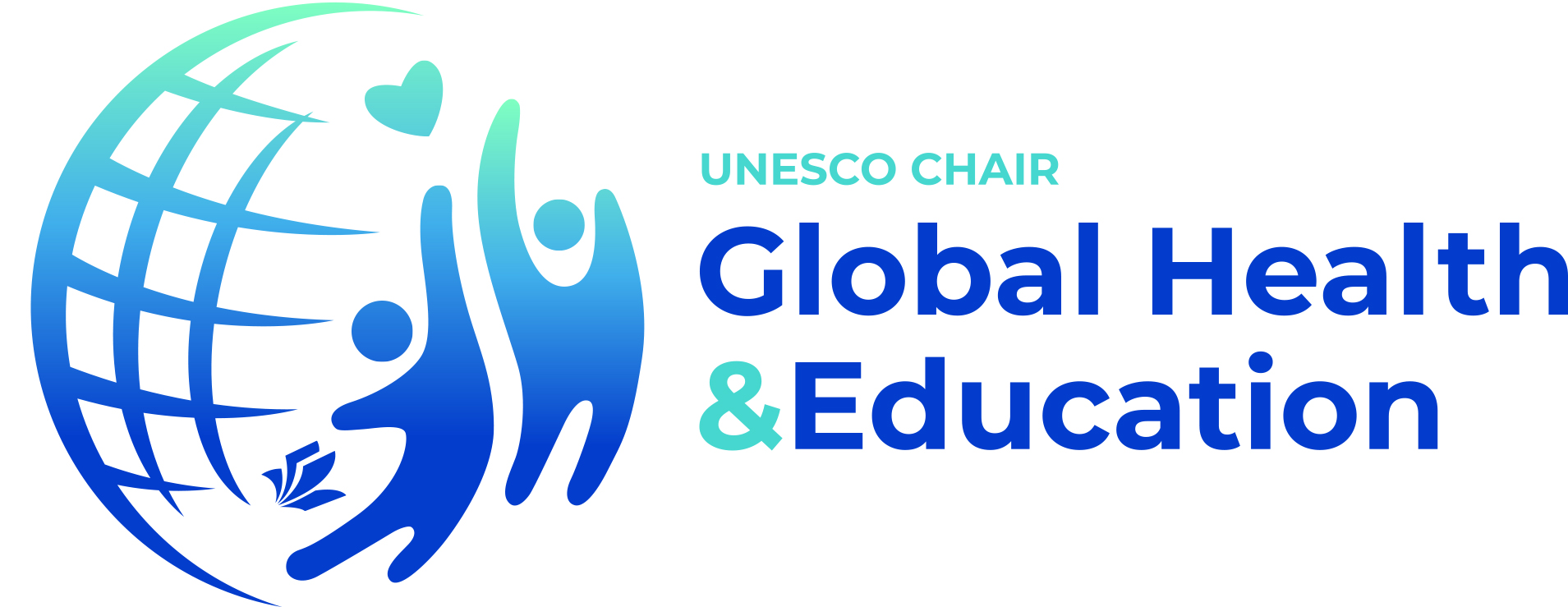Global Health & Education webinar series
21 January 2020
Speakers

Associated Professor Leena Paakkari, University of Jyväskylä, Faculty of Sport and Health Sciences, Finland

Doctor Orkan Okan, Bielefeld University, Faculty of Educational Science, Interdisciplinary Centre for Health Literacy Research, Germany

Professor doctor Kevin Dadaczynski, Fulda University of Applied Science, Fulda Public Health Centre, Leuphana University Lueneburg, Germany
English

This webinar is organised in collaboration with Schools for Health in Europe Network Foundation (SHE).

The Journal Health Education is the official journal of our webinar series and aims to support the UNESCO Chair’s mission of sharing knowledge to support the global community.
Summary
The aim of this webinar is to discuss health literacy in the school context and the educational sector. Health literacy is a critical 21st century competence that enables children and adolescents to critically evaluate health information, make informed decisions about health, and inform their health behaviour. This becomes paramount especially in context of digitalisation and digital change, both of which impact the way health information is produced, provided and communicated. Furthermore, health literacy contributes to health equity and enables children and adolescents to participate in and contribute to the society. The development of health literacy begins as early as in childhood and schools represent the most promising setting to facilitate the enhancement of child and adolescent health literacy. Incorporating health literacy in to the curriculum and interlinking with existing subjects, topics, and themes is therefore a necessary step. Health literacy is not only about personal competencies and individual behaviour but needs to be understood as a structural approach addressing system-level factors and conditions. These include professional development of teachers and educational staff, organisational change of and quality standards in education, and supportive policy development and investment.
Our speakers’ contributions
In this webinar the following three questions were addressed:
What is health literacy and why do we need to address it in schools?
The presentation of Doctor Orkan Okan
Why should we incorporate health literacy into the school curriculum?
The presentation of Associated Professor Leena Paakkari
How can we embed health literacy into school health promotion frameworks?
The presentation of Professor doctor Kevin Dadaczynski
Full video of the webinar
Participants’ contributions
In keywords, what does health literacy mean to you?

Do you address health literacy in schools as a curriculum subject or as a cross cutting issue?

Do you address health literacy in one or more of the following domains?

The participants’ questions and comments

Resources
SHE fact sheet no. 6: Health literacy in schools. English version. Danish version. German version. Italian version. Fact Sheet Video
Auld, M. E., M. P. Allen, C. Hampton, J. H. Montes, C. Sherry, A. D. Mickalide, R. Logan, W. Alvarado-Little, and K. Parson. 2020. Health Literacy and Health Education in Schools: Collaboration for Action. NAM Perspectives. Discussion Paper. National Academy of Medicine. Washington, DC. https//doi.org/10.31478/202007b
Dadaczynski, K., Rathmann, K., Okan, O., Paulus, P. (2020). What´s the relevance of school principals´ health literacy for the implementation of school health promotion. Results of an online study. International Journal of Environmental Research and Public Health. 17(6),1855. https://doi.org/10.3390/ijerph17061855.
International School Health Network (2020). Concept note on health literacy of children and adolescents in school settings. Global Working Group on Life Skills, Health Literacy, and Social Inclusion. In collaboration with the International Research Network (IRN) and sponsored by the World Education Research Association (WERA). Vancouver, CA.
National Academies of Sciences, Engineering, and Medicine. 2020. Developing Health Literacy Skills in Children and Youth: Proceedings of a Workshop. Washington, DC: The National Academies Press. https://doi.org/10.17226/25888.
Okan, O., Bauer, U., Pinheiro, P., Levin-Zamir, D., Sørensen, K. (Hrsg.) (2019). International Handbook of Health Literacy. Research, Practice and Policy across the Lifespan. Bristol: Policy Press.
Paakkari, L., Inchley, Jo., Schulz, A., Weber, M., Okan, O. (2019). Addressing health literacy in schools in the European region. Public Health Panorama. 5(2-3), 186–190. Copenhagen: World Health Organization, Regional Office for Europe.
Paakkari, L., Okan, O. (2019). Health literacy – talking the language of (school) education. HLRP: Health Literacy Research and Practice, 3(3):e161-e164. https://doi.org/10.3928/24748307-20190502-01
Paakkari, L., & Okan, O. (2020). COVID-19: health literacy is an underestimated problem. The Lancet Public Health, 5(5), e249-e250.
Paakkari, L., Torppa, M., Mazur, J., Boberova, Z., Sudeck, G., Kalman, M., & Paakkari, O. (2020). A Comparative Study on Adolescents’ Health Literacy in Europe: Findings from the HBSC Study. International Journal of Environmental Research and Public Health, 17(10), 3543.
Saboga Nunes, L., Sahrai, D., Bittlingmayer, U.H., Okan, O. (2020). Health Literacy Anthology New Approaches, New Insights on Health Literacy Research. Wiesbaden: Springer VS.
Vamos, S., Okan, O., Sentell, T., Rootman, I. (2020). Making a Case for ‘Education for Health Literacy’: An International Perspective. International Journal of Environmental Research and Public Health. 17(4), 1436. https://doi.org/10.3390/ijerph17041436.
World Health Organization (2013). Health Literacy. The Solid Facts. Geneva: World Health Organization, Regional Office for Europe.
World Health Organization (2017). Shanghai declaration on promoting health in the 2030 Agenda for Sustainable Development. Health Promot Int. 32(1):7–8.
This webinar is organised by UNESCO Chair and WHO Collaborating Center Global Health & Education in collaboration with Schools for Health in Europe Network Foundation (SHE), the University of Jyväskylä, Bielefeld University, Fulda University of Applied Sciences and supported by Emerald Publishing.


